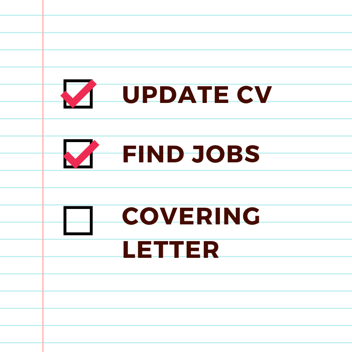CV Writing Tips – How good is your CV?
We always feel that the Autumn is a time for renewal and a good time for writing (or re-writing) your CV. Once the kids are back to school, many working parents breathe a sigh of relief as they focus on their working lives.
Employers are keen to get over the holiday period and button down their business strategies in the march towards Christmas. And that means it can be a good time to find a new role.
The best place to start is by going back to basics. You might think your CV is up to date and pretty good, but is it really the best it can be?
CV writing tips
Start your flexible job search by revisiting your curriculum vitae. Here are a few things to bear in mind when writing your CV…
Writing your CV
Your CV will need updating if you’re thinking about a new flexible role for the future. This may be as simple as filling in the latest position and adjusting dates. Or it could be a matter of starting all over again with a fresh new CV template to create an eye-catching, more modern design.
Think: what’s it for?
Your CV has one purpose … to get you an interview. Keep this in mind when reviewing or rewriting yours.
Your opening statement
A good CV will have an opening statement outlining who you are, a snapshot of your experience and what it is you want. When recruiters scan CVs, this is often the single most important piece of information they will read. Keep it to a couple of sentences and make it punchy and direct.
Use relevant words
Focus on using relevant wording for the position you will be applying for. Ideally, you’ll have a job advert in front of you and be able to use terminology from this to ‘pepper’ your CV with the same words. For example, if a role is seeking someone with management experience, make sure you mirror this in your CV with a relevant description of your management ability.
Stick to two pages
You may have many years of experience, but really the last two positions will be the ones recruiters focus on first. There is simply no point in outlining everything you’ve ever done over several pages. Brevity is key, waffle is out and jargon is definitely a no-no. Think about your reader – who is your audience and how can you appeal to them?
Never leave question marks
If you’ve had a gap in your career, you’re not the first and you won’t be the last. What is important is that you cover this when writing your CV. You don’t want any blanks in the reader’s mind as to why you’ve had a career break. You could say, ‘Career break to raise children’ or ‘Career break to carry out caring responsibilities’. You just need to be ready to demonstrate how ambitious you are – the place to do this is in the covering letter or email and certainly at interview.
No spelling mistakes
This sounds obvious but if you submit a bad CV with typos or errors, it will be frowned upon and you could even land at the bottom of the recruitment pile. Take time to edit your CV and ask a friend or colleague to check it over for you to be sure. Don’t rely on spell check necessarily. Get the dictionary out as the internet can come up with different spelling versions of words. Be certain and you’ll come across as reliable and self-assured.
Remember, attention spans are increasingly limited these days, so if you follow these basic rules, you’ll still be ahead of the pack – you’d be amazed that not everyone takes this care and attention over their CV.
If you want to learn more - check out our recent webinar on Creating a Winning CV.
Good luck with the job search!


 Back to resources
Back to resources 3 min read
3 min read






